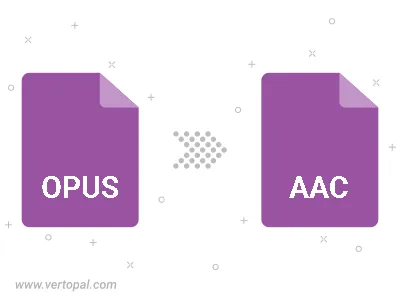Convert OPUS to AAC
Convert OPUS audios to AAC format, edit and optimize audios online and free.

Opus, associated with Opus Audio, is an open, royalty-free audio codec designed for high-quality voice and music streaming. Introduced by the Internet Engineering Task Force (IETF) in 2012, it adapts seamlessly to various applications like VoIP, videoconferencing, in-game chat, and live music performances. Known for its versatility, low latency, and high compression efficiency, Opus is widely adopted in modern communication platforms and web applications, making it a cornerstone in contemporary audio technology.
Advanced Audio Coding (AAC) is a digital audio file format designed to provide superior sound quality and compression efficiency compared to older formats like MP3. Developed in the late 1990s by a consortium of companies, including Fraunhofer IIS, Dolby, and Sony, AAC has become the standard audio format for various platforms, including Apple's iTunes and YouTube. It is widely used in streaming, broadcasting, and multimedia applications due to its ability to deliver high-fidelity audio at lower bit rates, making it ideal for bandwidth-constrained environments.
Drag and drop your OPUS file or click Choose File to proceed.
Check the preview and configure OPUS to AAC tools before proceeding.
Click Download after the AAC conversion ends to get your file.

Trim & cut OPUS and convert it to AAC.
Convert OPUS to AAC and set the output channels to Mono (1.0) or Stereo (2.0).
The Vertopal CLI tool provides efficient conversion from OPUS audio into AAC audio.